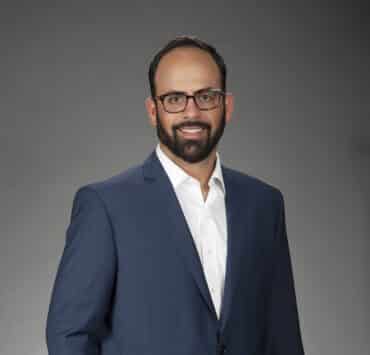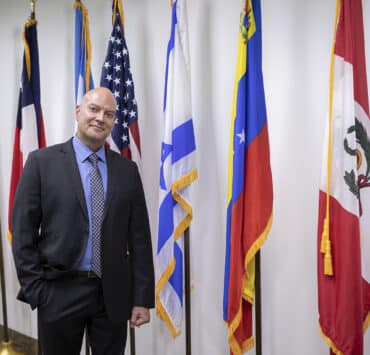|
Getting your Trinity Audio player ready...
|
What can a journalist teach corporate leaders about running a business? Turns out, quite a lot when you’re Maria Hinojosa.
Hinojosa is an Emmy Award-winning journalist who has made an impact working at media titans such as CNN and NPR, and she’s also the founder and president of Futuro Media Group, a nonprofit news organization. She spoke with a select group of Latinos in an intimate discussion sponsored by Capital One on September 30. Hinojosa discussed her company’s origins, how she remains optimistic, her book Once I Was You: A Memoir of Love and Hate in a Torn America, and more.
Here are just a couple of highlights from her conversation with Capital One:
A Low Point Leads to Opportunity
In 2010, Hinojosa found herself at a professional low point and decided it was time to launch her own company. She had to delve into the world of fundraising, which was a challenge.
“I wasn’t looking for investors. I wanted to do it as a nonprofit because the money was not about me—it was about the work,” she said. “It was somewhat easy because people knew me, but when you compare it to other media companies started by men—mostly white men, who were getting millions and millions—it was a struggle for sure.”
But the organization has come a long way since then. The year 2021 has been a banner year for Futuro Media Group, Hinojosa says: the organization has launched Futuro Studios, the new creative division of Futuro Media (which has created major podcasts such as Suave, La Brega, and Anything For Selena), and there are more projects and developments in the works.
Despite this success, Hinojosa openly acknowledged that starting one’s own enterprise can be exceptionally difficult.
“We did it, but it was really hard,” she said. “[It’s] scary when you’re looking at how you are going to make payroll. Humbling. And I’m so glad I never gave up. I feel a tremendous sense of privilege, and therefore responsibility, and I think that’s the thing that always kept me going.”
A Case for Paid Internships
The subject of whether interns should be paid is hotly debated across industries. But Hinojosa had no problem explaining where she stands on the issue.
As she explained in her book, Hinojosa was unable to take advantage of internship opportunities in college because she had to make money to support herself. She also admitted that in the early days of Futuro Media Group, when the organization was “really scrappy,” “it was hard for us to scrape together to pay an internship.”
The company has since evolved and grown, and today Futuro Media has a policy stating that interns must absolutely be paid. In fact, the organization ends up hiring many of its interns, Hinojosa said.
Futuro Media also hires fellows, allowing them work on long-term projects while receiving a stipend. But as successful as that fellowship program is, Hinojosa believes in keeping the door open for interns. “I do feel strongly that we should keep the internship portal alive because it is a way for many students to get in the door if they cannot do fellowships, which require more,” she explained.
Futuro Media is setting a clear example for nonprofit and for-profit companies alike. But to Hinojosa, other companies should do more than just follow suit in offering paid internships—they need to pay particular attention to the importance of Latino interns, she said.
“We know about what Latina consumers represent to a place like Capital One, or to Hispanic Executive,” she said. “We are the essential part of the economics of the United States, so I would be making sure that they’re my interns for sure.”
To watch the full interview, visit and subscribe to Hispanic Executive‘s YouTube channel.

